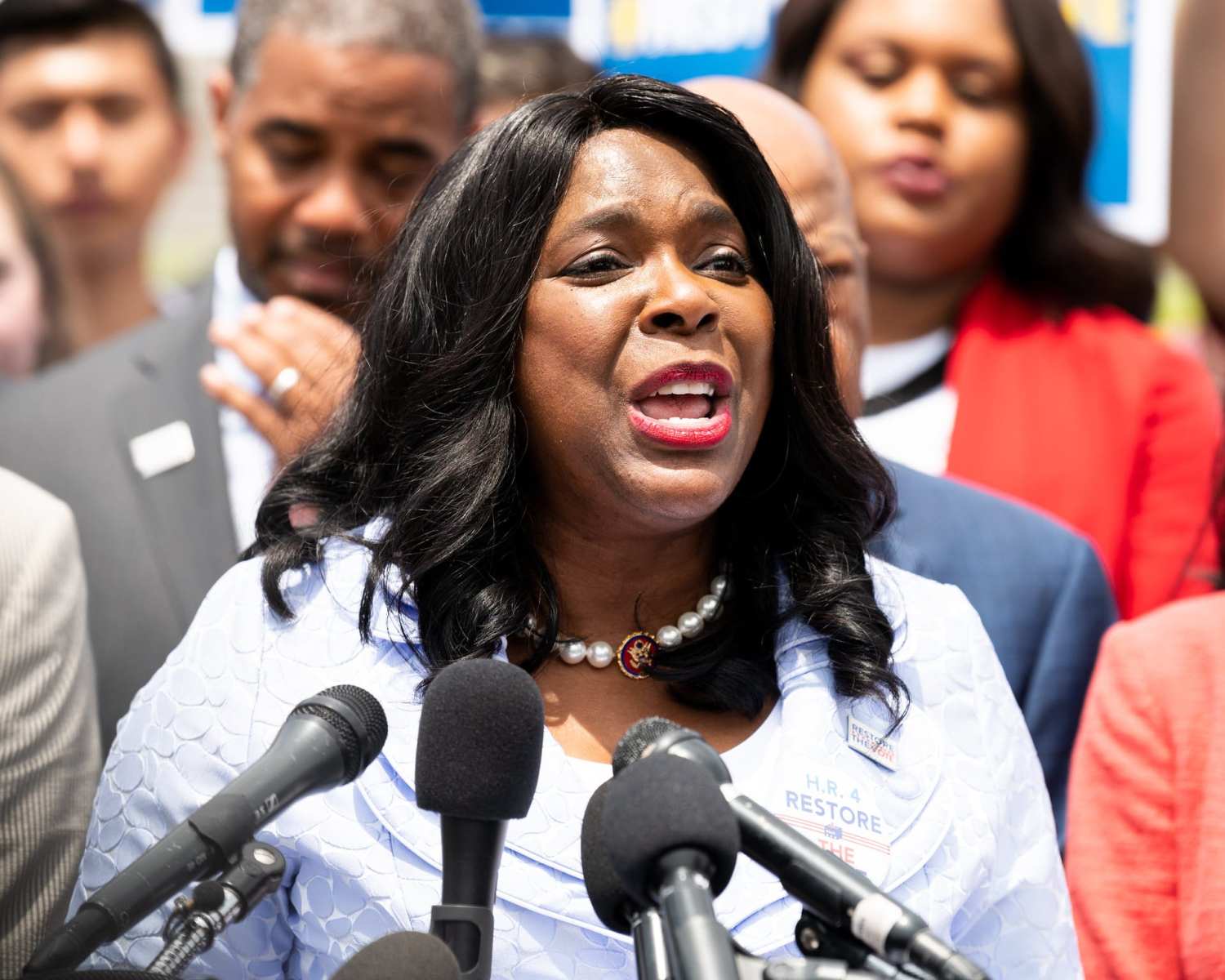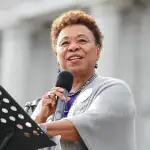Alabama Rep. Terri Sewell said she expects to make a decision “very soon” about whether she will run for the U.S. Senate seat being vacated by Republican Richard Shelby in 2022.
Sewell is the first Black woman elected to Congress from Alabama and the only Democrat in the state’s House delegation. Among the considerations factoring into her decision are her commitment to her district, which includes Selma, and issues including voting rights and the need for more Black women to be represented at the highest levels of power.
“We’re going to decide sooner than later. I’m doing my homework,” Sewell said in an interview with The 19th.
Any Democrat would have a tough road to election in Alabama, which went for former President Donald Trump by 25 points in 2020. The only Democrat to represent Alabama in the Senate since 1997 is Doug Jones. He won a special election to the Senate in 2017 — largely with the support of Black women — but lost the seat last year.
Sewell says she wants to consider a run, though, because Black women “need a seat at the table.”
“So often, we as Black women are dismissive of our leadership abilities, and the importance of our voice. If women like myself don’t consider it, who will?” she asked. “I cannot encourage women to run for office every day, as I do, without also looking myself in the mirror and making sure that I’m making decisions that are also moving this needle forward in some positive way.”
Vice President Kamala Harris’ ascent to become the second-most powerful person in the United States last month left no Black women in the Senate.
A record number of Black women are currently serving in the U.S. House of Representatives, but running for statewide and federal elected office can prove daunting for Black candidates, particularly Black women. Voters have never elected a Black woman governor, and only two Black women have been elected to serve in the Senate, including Harris. The first, Carol Moseley Braun of Illinois, was elected in 1992.
Black women are rarely able to build the multiracial coalitions needed to win statewide office, and often lack the fundraising support to run viable campaigns — perpetuating a cycle of unelectability that leaves them underrepresented despite overperforming politically at the polls.
Last week, Rep. Joyce Beatty said she would not run to replace Ohio Sen. Rob Portman, a Republican who announced he will retire in 2022. In a statement, the five-term member of Congress, a Democrat, said: “I’m honored by the overwhelming support to run for Ohio’s United States Senate seat, but I have determined that I can have the greatest impact in the district, state and nation by building on my work as a Congresswoman and Chair of the Congressional Black Caucus.”
A few other Democrats, including Rep. Tim Ryan, are said to be considering a run for the seat. Trump won Ohio by eight points in 2020.
Sewell, who first mentioned last weekend on MSNBC taht she was thinking of running for Shelby’s seat, said she is weighing similar factors to Beatty. She holds the House seat once held by Shelby, for whom she interned, and calls the role “the honor of a lifetime.” Now in her sixth term, she pointed out that she is also gaining more political power, finally earning a long-coveted spot on the Ways and Means Committee. She grew up in Selma, the city that birthed the Voting Rights Act of 1965, and the expansion of ballot access has become her signature issue in the House.
All are roles she would forfeit should she decide to run and lose.
“We’re doing the work that, I think, is the legacy of my district,” Sewell said. “But I want to be truthful, and the future of Black leadership, just generally in Congress, is critically important.”
Black women were among those urging California Gov. Gavin Newsom to appoint a Black woman to fill Harris’ term upon her departure. Newsom instead appointed former California Secretary of State Alex Padilla, who became California’s first Latinx senator.
Black women overwhelmingly supported Democrats in the 2020 election, sweeping a record number of Black women into the House of Representatives and scoring other electoral victories across the country. They pushed for a Black woman to be President Joe Biden’s pick as a running mate and voted in record numbers to elect the Biden-Harris ticket in November. Black women also helped deliver a Democratic majority in the Senate in January with victories in a pair of crucial Georgia Senate runoffs.
Representation in the Senate would be a return on that investment, said Glynda Carr, co-founder of Higher Heights, an organization that recruits Black women candidates and mobilizes Black women voters. The absence of Black women in the Senate points to a lack of a clear path, Carr said.
“Am I going to have broad national support, and statewide and committee support? Those are, I think, all calculated questions that Black women in the House probably have asked themselves,” Carr said. “And so, our work beyond 2020 is, what does the pipeline to the U.S. Senate look like? How do we actually build out a 2022, 2024 and 2026 strategy where you’re going to continue to see people running for office?”
The vice president spoke to the issue after her nomination last summer. In an interview with The 19th, she said it is “inexcusable” that Black women lack full representation in Congress given their role in democracy.
“This is a national issue,” Harris said. “We should encourage and always support women who are running for office, knowing that even if they are the first, that they are the one that is necessary for us to continue to break these barriers. I have not achieved anything that I have without the support of many who believed in the possibility of someone who has never been there before, being there.”
Sewell said she will be “exploring her options,” polling and strategizing, but added that she does not want speculation over her political future to be a distraction from her role as a member of the U.S. House. Still, she said, “I am all about Black women raising their voices and bringing chairs where there are no chairs to tables that some people don’t even see as reachable.”
“We’ve earned that right,” Sewell said. “And the fact that there are no Black women in the Senate is really disconcerting, and I know, is top of mind to a lot to a lot of us.”






